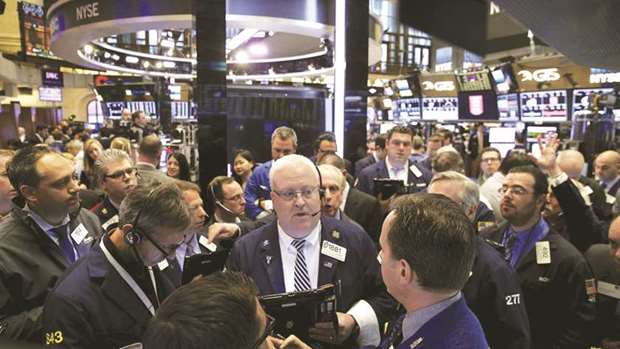Monopoly pricing power may be keeping US corporate earnings margins high and may justify even higher equity prices but the economy is increasingly less competitive and vibrant as a result.
A new study charts a strange phenomenon — the markups firms charge customers above their marginal costs have gone up and up in recent years, from 18% in 1980 to 67% by 2014.
“Markups are reaching heights multiple times higher than ever seen, at least since the second world war when our data start,” economists Jan De Loecker and Jan Eeckhout write in a paper released this month.”It is open to speculation whether this trend will continue, but for now there are no signs that markups will decrease substantially any time soon.”
That’s created the conditions to support today’s extremely high stock market valuations. Not only are companies rolling in cash thanks to high markups, but their need to share the benefits with lower skilled workers is diminished.
To make a good, or depending on your point of view, bad situation worse, all this is retarding economic growth, lowering labour force participation, and lowering both skilled wages and the demand for capital.
All of these factors have been in part behind the Federal Reserve’s decision to provide ample, cheap money, money which in turn has helped to drive up asset price valuations.
Whatever the reasons behind the phenomenon, the rise of market pricing power has been integral to the rise of the stock market.
What the paper describes is a rise in market power, or monopoly power, in the US since 1980, meaning the rise in the relative ability of firms to set prices above the level which would happen if an advantage were competed away.
All this has not gone unnoticed by equity investors.
While the S&P 500 stock index in 1980 traded on a multiple of only about nine times the earnings of the previous 10 years, today it trades at a multiple of almost 30.
That’s a richer market than at all times in history save just before the 1929 crash and the dotcom debacle at the turn of the millennium. “If investors believe that the current profit level that is four times higher than in 1980 is permanent, then we would expect that the stock market capitalisation would be four time higher than under perfect competition,” the authors write.
To be sure, equity prices reflect a complex, often muddled blend of factors, not just the ability of firms to extract profits from sales but also interest rates and the prospects for future growth, both in firms’ market share and in the economy as a whole.
The study used firm level data from publicly traded companies allowing them to compare output and input prices and derive profit margin data.
The paper makes no attempt to explain why margins have gone up, though the authors suggest a few alternatives, most of which include the role of technology.
The data show that there isn’t a strong pattern across industries, but that most of the margin increase happens within industries, with the top firms moving further and further away from the rest in terms of how much they can charge.
One surprising implication is that inflation, low as it has been, is actually higher than it would be if we still had the levels of competition and margins which prevailed in the post-World War II period up until 1980. Rising monopoly power in the US is one factor that has also encouraged the Federal Reserve to keep interest rates low.
Wage growth at the low end has been poor, output growth lower than it would have been, and labour force participation suppressed. For margins to fall and stock prices to go with them, several things would need to happen, none of which seem imminent or terribly likely.
Firstly, government could, as it has in other eras, take a more activist approach to anti-trust policy and law, working out and eradicating bars to competition.
That would be good for just about everyone but share owners and executives at high-margin earning firms, but given the current run of events, it is understandable that investors don’t expect it.
The Fed could also decide that the costs of supporting employment, output and inflation resulting from the monopoly power is not worth the risk and then hike interest rates.
* James Saft is a columnist for Reuters. The views expressed are those of the author.

Traders work on the floor of the New York Stock Exchange. While the S&P 500 stock index in 1980 traded on a multiple of only about nine times the earnings of the previous 10 years, today it trades at a multiple of almost 30.
